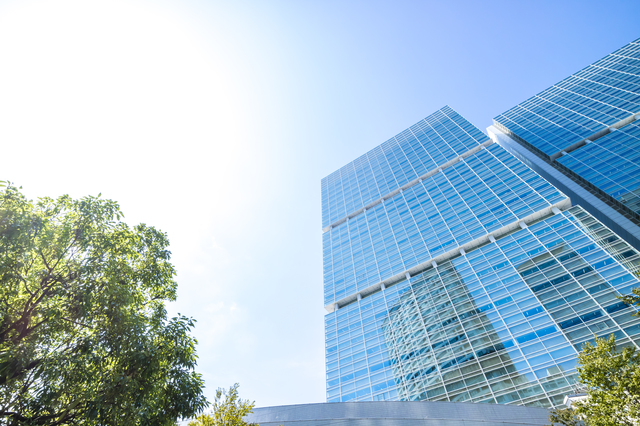REIT, Turning point in expansion bias

In real estate investment trusts (REITs), which have been less successful than their Japanese counterparts, there has been a change in their growth strategy, which has been focused solely on expansion. Recognizing the difficult environment for investment above the cost of capital, some REITs have resumed buying their own investment units, which is equivalent to buying back shares of stock. This could be a clue to buoy the sluggish REIT market.
“The results of the public offering provided us with a valuable opportunity to consider what steps we should take in this market environment.” LaSalle LOGIPORT REIT, a logistics REIT company, held a financial results meeting in mid-October, and the president of the management company, Ji Shihaira, began by saying.
In June, it announced its first public offering in about two years to acquire three properties in Kyoto and Aichi prefectures. The investment unit price (stock price) entered a downward trend from the business day following the announcement, sinking to its lowest level since April 2020 at the beginning of October.
Most REIT capital increases are conducted in conjunction with property acquisitions. Unlike the stock market, which is prone to “sell on dilution concerns,” it is often a bullish factor. In particular, logistics REITs, which have seen a noticeable increase in demand, have continued to expand their assets through capital increases.
However, there have been notable cases of selling in the recent past, such as LaSalle LOGIPORT REIT. The average investment unit price of the 13 issues announced since April of this year remained below the Tokyo Stock Exchange REIT Index until at least 25 business days after the announcement. Selling pressure is particularly strong in logistics REITs.
The background is “reversal” in the capital markets. In REITs, the “Implied Cap Rates” required by the relationship between the yield of asset holdings and the investment unit price is considered to be the cost of capital (investor’s required return). According to SMBC Nikko Securities, the rate was 4.0% for logistics REITs as of the end of October. This is 0.4 percentage points higher than the 2022 average, and investors are now looking up.
The expected return on the property is falling. The “acquisition cap rate,” which is required by dividing the net cash flow for appraisal purposes by the acquisition price, is 3.8%, 0.4 percentage points below the 2022 average for properties in the Tokyo metropolitan area. This is because property prices will soar as a result of money inflows and other factors leveraged by low interest rates.
“In this situation, blindly expanding the size of assets will damage unitholder value. The slump in investment unit prices is no surprise.” Hiroshi Torii, senior analyst at SMBC Nikko, said.
LaSalle LOGIPORT REIT has positioned the sale of properties as a method of raising capital, and has indicated that it intends to use the proceeds to buy its own investment units. Investment unit prices returned to levels close to those before the capital increase was announced on November 30.
On 27th, GLP J-Reit announced the purchase of its own investment unit. Yasuyuki Kuroki, chief fund manager at Mitsubishi UFJ Asset Management, says, “There has been a move to pause from the expansion strategy. It can be said that investors are now aligned with the company, and this could trigger a review and buying.”
Yosuke Ohata, senior analyst at Mizuho Securities, emphasizes, “It is a common challenge for REITs to shrink their balance sheets, which have ballooned due to deflation and falling interest rates.” NAV (net assets at market value) multiples, which are equivalent to PBR (price-book value ratio), are on average less than 1x. “Selling properties with no growth potential and using them to buy back their own investment units will improve NAV, dividend per unit, and investment unit supply and demand in a well-balanced manner, and will have a lasting effect” (Yosuke Ohata).
But the hurdles are not low. This is because the compensation of asset managers is linked to a certain degree to the size of their assets. Many believe that high interest rates and inflation will push up the cost of capital and that property prices are not expected to adjust in the near term.
Can you carry out the transformation that will cut you down for the future? The skill of management is likely to lead to medium-term ups and downs.
Related links


